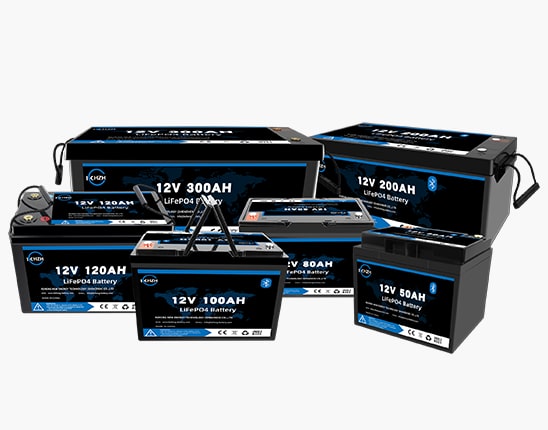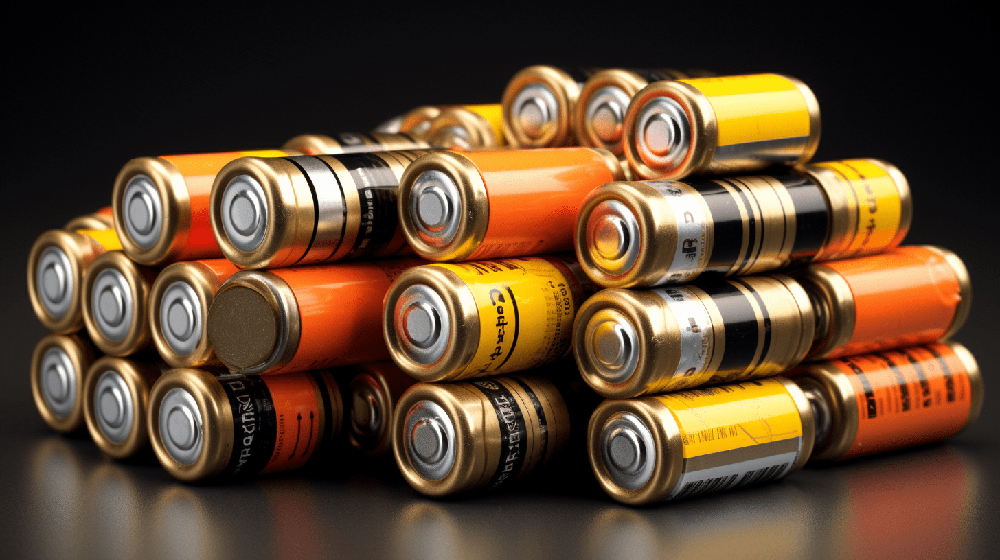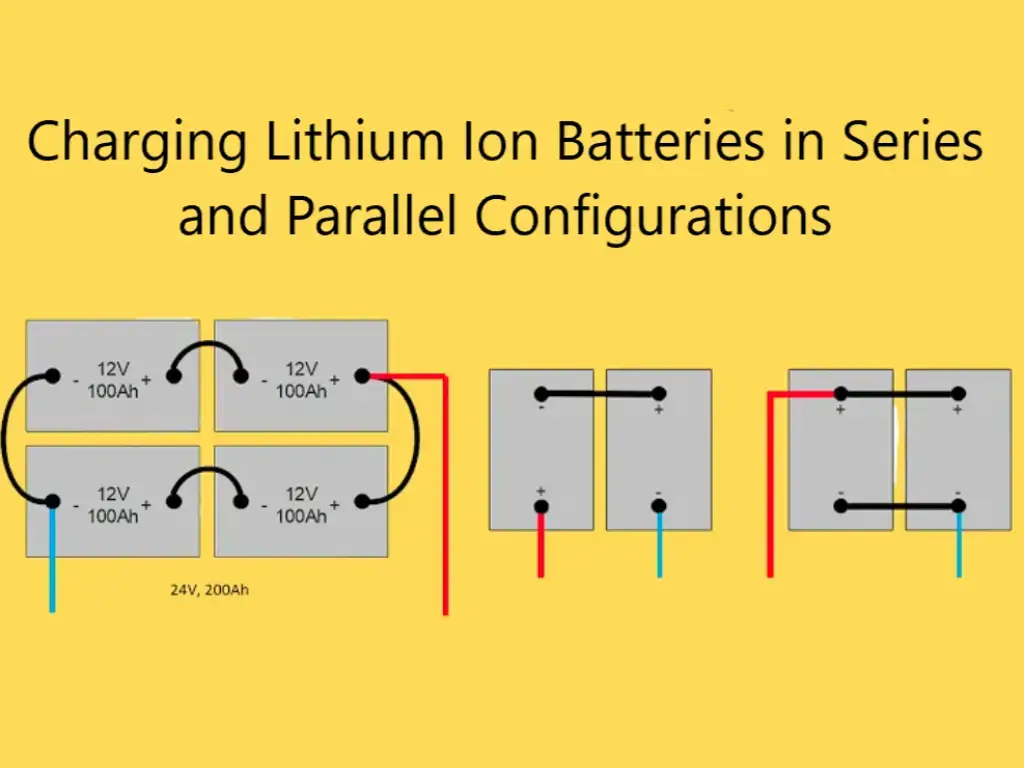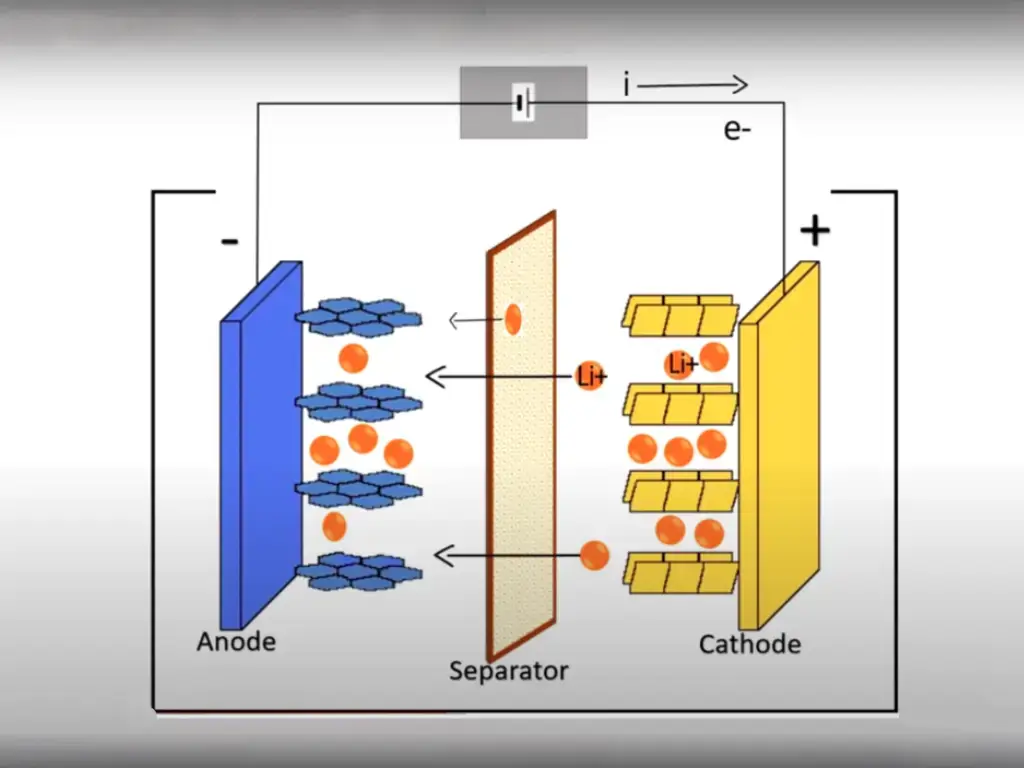What is Lithium battery?
Lithium batteries are a popular type of battery on the market. Lithium batteries are batteries made using lithium metal or lithium alloy as the raw material. The advantages of lithium batteries are high energy density, high voltage, long service life, and lightweight, but it has a disadvantage of high price. Lithium batteries can be divided into LIFEPO4 (LFP)/ Manganese Cobalt (NMC)/ Lithium Titanate Battery LTO for the battery made by the core, each material has different advantages and disadvantages. Below I will give you a brief introduction to the advantages and disadvantages of LFP/ LTO/ NMC batteries and application areas.
What is a LFP battery
LFP is usually also called lithium battery: this is a new type of lithium-ion battery, its positive electrode is lithium iron phosphate, its negative electrode is graphite, and the electrolyte is lithium salt in organic solvent. It has high safety, long cycle life high-temperature resistance, environmental protection are its various advantages, the disadvantage is mainly low energy density and high price. It is mainly used in electric vehicles, energy storage systems, and other occasions.
What is NMC battery
NMC (ternary) battery: the battery made of this material has high energy density, the positive electrode is made of lithium nickel cobalt manganese or nickel cobalt aluminate, and the negative electrode is made of graphite with lithium salt as the electrolyte. Advantages are mainly reflected in the high energy density, fast charging speed, and lightweight, the disadvantages are mainly reflected in the poor safety short life, and high cost. It is mainly used in electric vehicles, energy storage systems, and other occasions. It is mainly used in electric vehicles, energy storage systems and other occasions.
What is LTO battery
LTO (titanate) battery: it uses lithium titanate as the anode material instead of the common graphite. the advantages of LTO are fast charging speed, long cycle life, high safety, high-temperature resistance, and environmental protection. the disadvantages of the LTO battery are low energy density, low voltage, and extremely expensive. LTO batteries are mainly used in automotive, energy storage systems, industrial, military and other fields where high power and high safety are required.

What is an Alkaline Battery
Alkaline batteries are batteries that use alkaline alkaline electrolyte as the electrolyte, manganese dioxide as the positive material, and zinc powder as the negative electrode. The advantages of this battery are high capacity, high power, and good safety, and the disadvantages are that it is a disposable battery with high cost and environmental pollution. The voltage of this battery is generally low and will decrease with use. They are mainly used in electric tools. Over time the battery shell will be corroded by the internal material, which is very dangerous for the environment and people.

Classification Of Batteries
What are the classifications of lithium-ion batteries?
In lithium batteries people often ask what types of lithium batteries, the next for you to introduce the following lithium batteries commonly used classification:
-
14500 Lithium cell: Diameter 14mm, Length 50mm
-
18650 Lithium cell: Diameter 18mm, Length 65mm
-
21700 Lithium cell: Diameter 21mm, Length 70mm
-
26650 Lithium cell: Diameter 26mm, Length 50mm
-
32650 Lithium cell: Diameter 32mm, Length 65mm
Lithium batteries have square designs in addition to the round ones mentioned above. Square batteries are often called Prismatic (rectangular) and Pouch (soft pack) batteries. These square batteries are easier to customize. So when choosing a lithium battery, you need to consider not only the voltage and capacity, you should also consider the shape of the product that can be applied to your product.
What Are The Classifications Of Alkaline Batteries?
Alkaline batteries are common disposable batteries used in daily life, and their electrochemical reaction is based on an alkaline electrolyte. Alkaline batteries usually come in the following common sizes:
-
AA model (LR6): 14.5mm diameter, 50.5mm length
-
AAA model (LR03): Diameter 10.5mm, length 44.5mm
-
Model C (LR14): Diameter 26.2mm, Length 50mm
-
Model D (LR20): 34.2mm diameter, 61.5mm length
How should I choose between alkaline and lithium batteries?
What is the demand for lithium batteries?
- When choosing lithium batteries you need to choose according to the application scenario, if you are used in electronic devices such as mobile devices, computers or other devices that need to be recharged then high capacity and weight are your priority.
- If the application in the power battery such as golf carts, marine, kayaks, RVs, or electric vehicles on the use of then you should focus on high energy density, and cycle life, which can ensure that the power battery provides reliable power output power.
- In energy storage systems such as commercial and industrial energy storage or home energy storage, you should focus on the self-discharge rate of the battery and whether to support the storage of renewable energy generation.
What is the demand for alkaline batteries?
Alkaline batteries need to be selected according to different dimensions.
- If they are used in portable devices such as remote controls and mice, then they need to be able to provide a stable, one-time power source that does not need to be replaced frequently.
- In the case of emergency power backup, alkaline batteries should be selected with a low discharge rate to ensure a long service life under prolonged storage.
- In some low power devices, such as clocks, electric toys, alkaline batteries are the most economical, to ensure the efficiency of the case can also be cheaper.
Advantages of Lithium-ion Batteries vs. Alkaline Batteries
Lithium Battery
Long cycle life: Li-Ion batteries can be charged and discharged 15,000-2,000 times, making them stand out in applications that require long periods of use as well as frequent recharging.
Lightweight design: The lightweight design makes Li-ion batteries ideal for mobile devices and electric transportation.
No "memory effect": Not needing to be fully discharged before recharging ensures efficient travel and reduces the hassle of battery management.
High voltage stability: The relatively high voltage of Li-ion batteries ensures that the equipment is in use to obtain stable power to better provide work efficiency.
Fast charging capability: Lithium-ion batteries can be charged quickly, reducing waiting time and improving the continued usefulness of the device.
Temperature Sensitive: Using lithium batteries in extreme environments will affect the efficiency and safety of lithium batteries.
Alkaline Battery
Widely Used: Alkaline batteries are one of the most widely used batteries on the market and can be found in portable devices.
Longer storage life: Due to their low self-discharge, they are guaranteed to last a long time.
Ease of use: Disposable batteries are easy and convenient to use as they require no other considerations.
High environmental impact: zinc, cobalt, and manganese in batteries can harm the environment
High-temperature impact: poor discharge performance at low temperatures
Comparison of the cost and cost-effectiveness of lithium and alkaline batteries
|
Feature
|
Alkaline Batteries
|
Lithium Batteries
|
|---|---|---|
|
Initial Cost
|
Lower
|
Higher
|
|
Lifespan (Relative)
|
1x (Shorter)
|
8-10x (Longer)
|
|
Performance in Extreme Temperatures
|
Poorer
|
Better
|
|
Weight
|
Heavier
|
Lighter (33% less than alkaline)
|
|
Energy Storage Duration
|
Shorter
|
Up to 20 years
|
Alkaline battery: this battery is made of cheap raw materials, as alkaline batteries are only able to be chosen in daily equipment, due to its low cost so the use is only disposable, so that it will not be able to meet the long-term demand for high energy demand for the use of the scene.
Lithium batteries: it is more costly in the raw material market, but the advantages in other aspects completely outweigh the added value of the price, which is a major reason for the popularity of lithium batteries in the market. Lithium batteries last 8-10 times longer than alkaline batteries and can be guaranteed to last up to 20 years in extreme environments (-40°F to 140°F), with a cycle life of 15,000-20,000 cycles.
In summary, while alkaline batteries have a lower upfront budget, the shorter life span is not suitable for long-term use in mimeograph conditions. In contrast, lithium batteries, despite their higher initial cost, have a longer life and superior performance, making them a more cost-effective choice.
Safety Advantages and Disadvantages of Lithium Batteries
- Safety of lithium batteries
- Advantages.
1. High energy efficiency: Lithium batteries reduce safety risks due to their large size.
2. Stability: Leakage does not usually occur under normal conditions of use. - Disadvantages.
1. Overheating Risk: Lithium batteries can overheat and even risk explosion if overcharged or physically damaged.
2. Environmental Sensitivity: Lithium batteries can be damaged when used or stored in high-temperature environments, leading to safety issues.
- Safety of Alkaline Batteries
- Advantages:
1. Chemical Stability: Not susceptible to chemical reaction risks.
2. Temperature Resistance: Alkaline batteries are more stable in extreme temperatures. - Weaknesses:
1. Leakage Risk: Alkaline may leak if unused for a long time or expired.
2.Environmental concerns: Alkaline batteries are not easy to recycle and have an impact on the environment.
Compatibility Comparison of Lithium and Alkaline Batteries Lithium battery compatibility
Advantages
1. Voltage range: able to provide higher voltage (can be customized according to the voltage required by the equipment used) better suited to modern equipment.
2. Rechargeability: allows batteries to be recycled to ensure efficiency and reduce environmental pollution.
Disadvantage:
1. Specific voltage: Requires specific voltage and current, not very compatible.
Alkaline Battery Compatibility
1. Advantage: Standardized Size and Voltage: Alkaline batteries are compatible with alkaline batteries.
Standardized size and voltage: Alkaline batteries (such as AA and AAA batteries) usually have standardized size and voltage.
2. No special circuitry required: Alkaline does not require protective circuitry and is compatible with simple battery-operated devices.
Disadvantages.
1. Non-rechargeable: Alkaline batteries are disposable.
2. Limited Voltage Range: Alkaline batteries have a relatively low voltage and are not suitable for modern electronic devices that require high voltages.
How can I tell if I'm using lithium or alkaline batteries?
Through the above introduction I believe in your mind should be able to roughly determine the daily use of the battery is lithium or alkaline batteries, but in addition to the content covered above, the following I will take you from a more professional point of view to recognize lithium and alkaline batteries!
1: Check the manual or labeling of the device, which will indicate the type and specifications of the battery needed, this is the most direct way!
2: By looking at the shape and size of the battery, alkaline batteries are specific to the size in AA/ AAA/ C/ D. Lithium batteries are a completely different size commonly available in cylindrical (18850), square, or for special customization.
3: through the product voltage range, respectively, the use of 1.5V voltage devices are usually alkaline batteries, more than 1.5V above the probability of using lithium batteries.
4: According to the power requirements of the equipment to determine, if it is some long-term use of equipment then more likely to use lithium batteries, if it is some low-power equipment then the use of standard alkaline batteries.
5: Check whether the battery can be charged, alkaline batteries can not be charged, while lithium batteries are usually rechargeable.
6: According to the use of common, if you need to use in the temperature changes, the design needs to be small scene, then use lithium batteries!
If through the above you still can not determine the use of lithium batteries or alkaline batteries, you can contact us, we can provide you with any help!
How to choose the right lithium battery guide?
Understanding the different types of lithium-ion batteries: There are several types of lithium-ion batteries, each with different characteristics. For example, some batteries offer high energy output, others provide high energy density in a smaller size, and still others are designed for long-term durability.
1: If you are using a device with a voltage within 3.2V-51.2V then this selection of lithium batteries can better help you (51.2V is a safe voltage for humans)
2: Need to take into account the length of use, if this battery needs to work for a long time, then you can choose a high-capacity lithium battery that can meet your needs!
3: lithium batteries need to be used in the performance of meta-transportation, then you should also be high consideration of the charging efficiency so that a better solution to the problem of cyclicity.
4: If the battery needs to be used in temperatures below -40℉ or above 140℉, then the battery needs to add some specific features such as heating to ensure that the equipment will not go on strike due to environmental impacts.
According to the above environment, I recommend you choose the voltage of the lithium battery:
1. If you are using an RV, golf cart, fishing boat, marine, agriculture, etc., then you can choose 12V-24V lithium batteries, which can provide better energy density and practicability.
2. Scenarios are industrial batteries such as forklifts, lifts, and industrial equipment, then you can choose more than 48V batteries so that you can better ensure the efficiency of use!
3. Usage scenarios for power batteries such as large marine batteries, sweepers, and system energy transportation, such usage scenarios thieves need to ensure efficiency through high voltage, current, and fast charging.
Hope that these introductions can better help you choose lithium batteries!
How should I find a good lithium battery supplier?
If you happen to have such a need, then you can read this blog “Top 15 Lithium Ion Battery Manufacturers“. Of course, Keheng is also a professional Lithium Ion Battery Manufacturer, you can check our website to see if there are any products that meet your needs. Or you can contact Keheng technical team to inquire.





2 thoughts on “Lithium vs. Alkaline Batteries: Why Lithium-ion Batteries?”
Does Bose have a dedicated app?
Yes! Our lithium batteries have a dedicated app